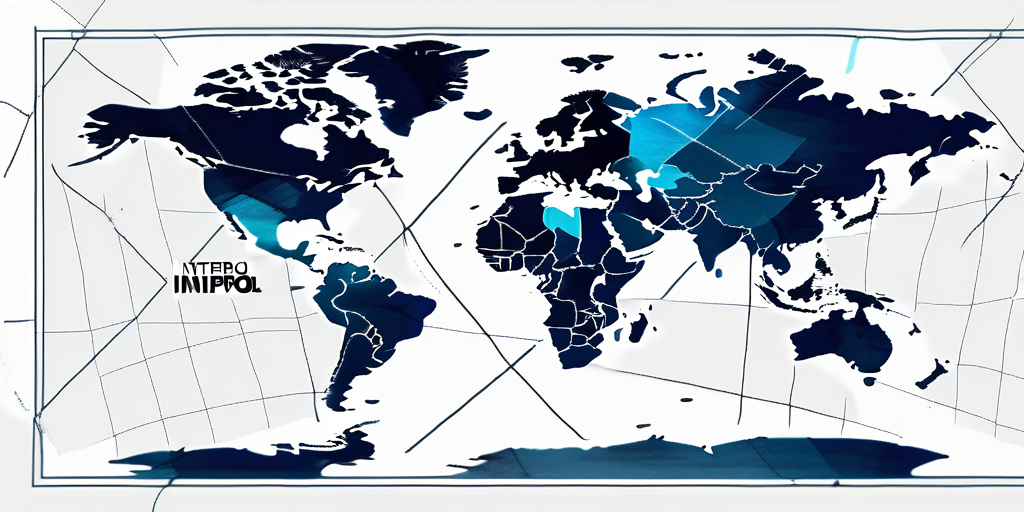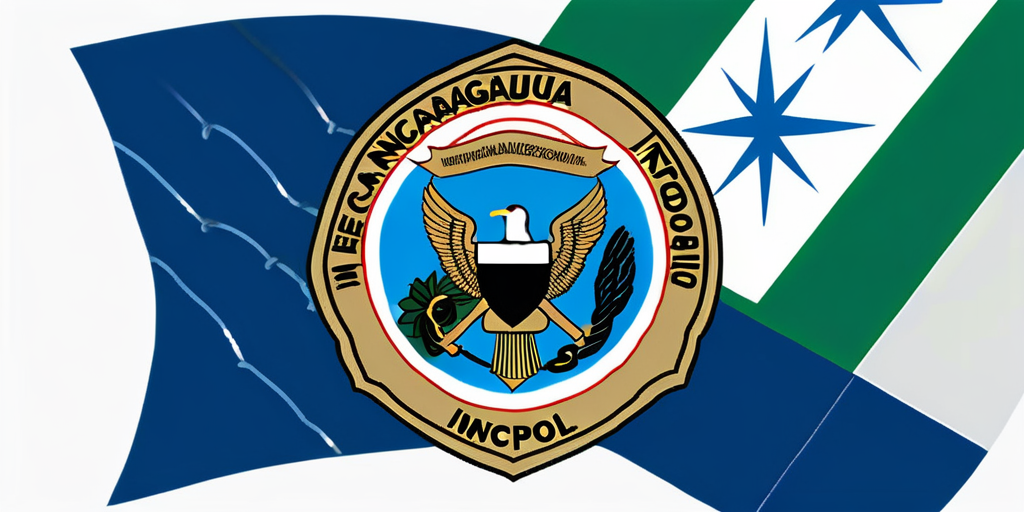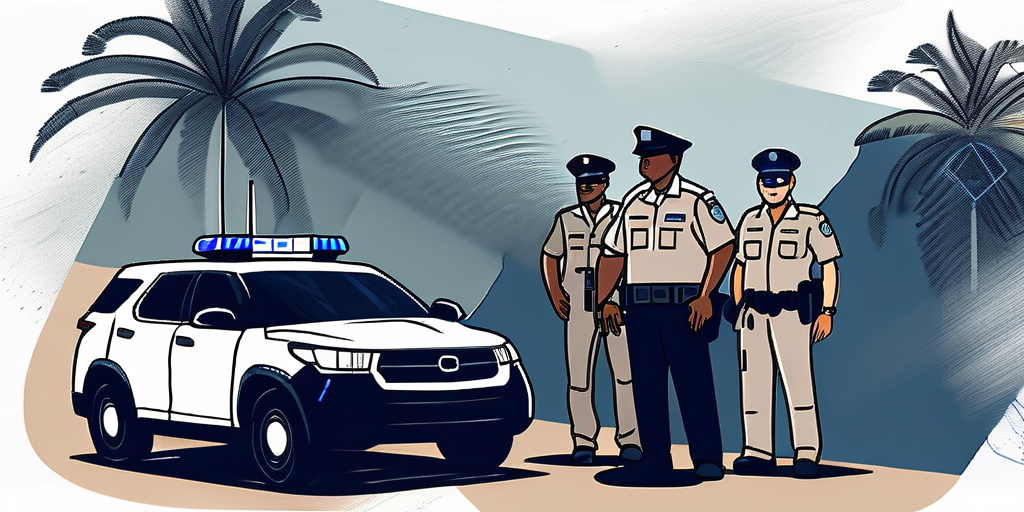Nicaragua’s partnership with Interpol highlights the country’s commitment to international law enforcement cooperation and reflects the global impact of this esteemed organization. Understanding Interpol’s role is crucial to comprehending the significance of this partnership and the benefits it brings to Nicaragua’s law enforcement agencies.
Understanding the Role of Interpol
Interpol, short for the International Criminal Police Organization, is the world’s largest international police organization. With its headquarters in Lyon, France, Interpol serves as a bridge between law enforcement agencies worldwide, facilitating global police cooperation and fostering security and stability.

Interpol’s mission is to promote and initiate international police cooperation to prevent and combat transnational crime. This involves coordinating efforts, exchanging police information, and supporting law enforcement agencies in their fight against crime.
The Global Impact of Interpol
Interpol’s presence and influence extend far beyond the borders of any single nation. With 194 member countries, Interpol’s reach is truly global, allowing for the exchange and sharing of vital information related to criminal activities. This collaboration is instrumental in combating various forms of transnational crime, such as terrorism, human trafficking, drug smuggling, and cybercrime.
By providing a platform for police agencies worldwide to collaborate and share intelligence, Interpol enables law enforcement authorities to stay one step ahead of criminals regardless of geographical boundaries or jurisdictional limitations.
Interpol’s Key Functions and Responsibilities
Interpol serves as a central repository of information on international criminals, stolen goods, and missing persons. The organization’s databases, which are accessible to member countries, provide critical investigative leads and support the identification and capture of criminals.
Additionally, Interpol assists member countries in coordinating international operations and fugitive investigations. Through training programs, capacity building initiatives, and technical support, Interpol enhances the operational effectiveness of law enforcement agencies worldwide.
The organization also plays a pivotal role in assisting member countries in extraditing fugitives and facilitating the transfer of criminal evidence across borders, thereby ensuring that justice is served and criminals face the consequences of their actions.
The Genesis of Nicaragua’s Partnership with Interpol
Nicaragua’s partnership with Interpol has a rich historical context that underscores the country’s dedication to combating crime and fostering international collaboration.
Historical Context of the Partnership
The relationship between Nicaragua and Interpol dates back to [specific year/event], when Nicaragua became a member country. This marked a significant milestone in strengthening the country’s ties with the international law enforcement community and solidifying its commitment to combating transnational crime.
Key Figures in the Formation of the Partnership
The establishment of Nicaragua’s partnership with Interpol can be attributed to visionary leaders and dedicated law enforcement professionals who recognized the importance of international cooperation in addressing the challenges posed by modern-day criminal activities.
[Name of influential figure] played a crucial role in advocating for Nicaragua’s membership in Interpol, recognizing the potential benefits and the impact it would have on the country’s law enforcement capabilities.The Nature of Nicaragua’s Partnership with Interpol
Nicaragua’s partnership with Interpol is governed by a set of terms and agreements that outline the specific responsibilities and obligations of both parties.

The Terms of the Agreement
The partnership between Nicaragua and Interpol is based on mutual trust, respect, and the shared commitment to combating transnational crime. The terms of the agreement stipulate the extent of cooperation and the areas in which information and intelligence sharing take place.
These terms ensure that the partnership upholds international norms, respects human rights, and adheres to the principles of due process and the rule of law.
The Scope of Collaboration
Nicaragua’s collaboration with Interpol spans various domains of law enforcement, including but not limited to counterterrorism, combating organized crime, cybercrime, drug trafficking, and stolen goods identification.
The partnership enables Nicaraguan law enforcement agencies to access Interpol’s vast network of resources, expertise, and databases, thereby enhancing their investigative capabilities and facilitating information exchange with other member countries.
The Impact of the Partnership on Nicaragua’s Law Enforcement
The partnership between Nicaragua and Interpol has had a profound impact on the country’s law enforcement landscape, strengthening its crime detection and prevention efforts while fostering international relations.

Enhancements in Crime Detection and Prevention
Through its partnership with Interpol, Nicaragua has gained access to real-time intelligence and information on criminal activities occurring across borders. This access has enabled Nicaraguan law enforcement agencies to proactively identify emerging criminal trends, anticipate threats, and allocate resources accordingly.
Furthermore, Interpol’s training programs and capacity-building initiatives have equipped Nicaraguan law enforcement officers with advanced investigative techniques and tools, enabling them to employ international best practices in crime detection and prevention.
Strengthening of International Relations
The partnership with Interpol has significantly enhanced Nicaragua’s international standing in the law enforcement community. By actively participating in Interpol’s activities and collaborating with fellow member countries, Nicaragua has established trust and goodwill among its peers.
This enhanced international cooperation not only bolsters Nicaragua’s crime-fighting capabilities but also opens avenues for diplomatic and strategic partnerships, enabling the country to better respond to the challenges posed by transnational crime.
Challenges and Controversies Surrounding the Partnership
While Nicaragua’s partnership with Interpol has brought numerous benefits, it is not without its challenges and controversies.
Legal and Ethical Issues
Some critics argue that Interpol’s operations may be prone to political manipulation, with some member states potentially abusing the organization’s platform for personal or political gain. However, it is essential to recognize that Interpol operates within a robust legal framework and protocols that safeguard against any misuse of its resources for political ends.
Furthermore, the partnership between Nicaragua and Interpol is built on principles of transparency, accountability, and respect for the rule of law, ensuring that the collaboration upholds Nicaragua’s legal obligations and protects individual rights.
Public Perception and Response
Another challenge surrounding Nicaragua’s partnership with Interpol lies in managing public perception and addressing any concerns about the perceived intrusion of a foreign organization into national law enforcement affairs. It is essential to engage with the public, articulate the benefits of the partnership, and ensure that the general population understands the positive impact it has on their safety and security.
By proactively addressing these challenges and controversies, Nicaragua can leverage its partnership with Interpol to further enhance its crime-fighting capabilities and solidify its commitment to the rule of law.
In conclusion, Nicaragua’s partnership with Interpol underscores the country’s dedication to combating transnational crime and ensuring the safety and security of its citizens. By collaborating with this esteemed international law enforcement organization, Nicaragua has gained access to invaluable resources, expertise, and intelligence that have strengthened its crime detection and prevention efforts. Despite the challenges and controversies, the partnership with Interpol remains a valuable asset in Nicaragua’s pursuit of justice and the promotion of global security.
